Sustainable Seafood
- What is Sustainable Seafood?
- Why is Sustainable Seafood Important?
- How Can We Support Sustainable Seafood?
- How to Choose Sustainable Seafood?
- Bumble Bee Seafoods
- Ocean Hugger Foods
- Verlasso
- Blue Circle Foods
- Wildtype Foods
- Sea to Table
- Fishpeople
- Good Catch Foods
As our world’s population continues to grow, the demand for seafood has increased dramatically, leading to overfishing and other unsustainable practices. In order to ensure the long-term health of our oceans and the livelihoods of those who depend on them, it’s important to support sustainable seafood practices.
By 2050, the world’s population is projected to increase by 2.4 billion people, and to meet the impending demand for food, the Food and Agriculture Organization of the United Nations suggests that we need to increase our food production by 70 percent.
However, as some wild fish stocks are depleting, aquaculture presents itself as a practical solution for sustainable food production and to help replenish depleted fisheries.
In addition to meeting food demands, aquaculture also provides economic value to local communities. By reducing reliance on imported seafood, the U.S. could decrease its trade deficit while creating “blue tech” jobs to revitalize its working waterfronts.
In this this post, we’ll explore what sustainable seafood means, why it’s important, and what we can do to support it.
What is Sustainable Seafood?
Sustainable seafood is seafood that is caught or farmed using methods that support the long-term health and viability of fish populations, as well as the health of the marine environment.
This means using fishing methods that avoid overfishing and bycatch (the unintentional capture of non-target species), as well as farming methods that do not harm the environment or wild fish populations.
Why is Sustainable Seafood Important?
Overfishing and unsustainable fishing practices have led to the depletion of many fish populations, threatening the future of our oceans and the livelihoods of those who depend on them.
Unsustainable fishing practices can also harm the environment and other marine life, leading to a loss of biodiversity and negative impacts on the health of the ocean ecosystem.
By supporting sustainable seafood practices, we can help protect the oceans and ensure that fish populations remain healthy for future generations.
How Can We Support Sustainable Seafood?
The latest research from the Marine Stewardship Council (MSC) shows support for sustainable seafood is growing.
- 65% of North American seafood consumers believe that their seafood choices can have a positive impact on ocean health, an increase from 58%.
- 68% of consumers believe that seafood should only be consumed from sustainable sources, a 10-point increase from last year.
- 37% of US consumers and 41% of Canadian consumers are willing to purchase more sustainable seafood, and one in five has already made this shift in the last year.
- For half of the consumers surveyed (56% in Canada and 49% in the US), ecolabels on seafood products increase their trust and confidence in the brand.
- 69% of consumers demand that retailers’ and brands’ claims about sustainability and the environment be clearly labeled and third-party verified.
There are several ways that we can support sustainable seafood practices:
- Choose sustainably sourced seafood: Look for seafood that has been certified as sustainable by organizations such as the Marine Stewardship Council or the Aquaculture Stewardship Council. These certifications ensure that the seafood has been caught or farmed using sustainable practices.
- Know what you’re eating: Educate yourself about the different types of seafood and how they are caught or farmed. Avoid seafood that is known to be overfished or caught using unsustainable methods, such as bottom trawling.
How to Choose Sustainable Seafood?
Choosing sustainable seafood can be challenging, but there are resources available to help you make informed choices.
One of the most trusted sources for sustainable seafood is the Monterey Bay Aquarium’s Seafood Watch program, which provides up-to-date recommendations for sustainable seafood based on scientific research and industry trends.
When choosing seafood, look for labels that indicate sustainable and responsible fishing practices.
The Marine Stewardship Council (MSC) and the Aquaculture Stewardship Council (ASC) are two organizations that certify sustainable seafood.
These labels indicate that the seafood is sourced from responsible and sustainable fisheries and farms.
Finally, be open to trying new types of seafood. Popular fish such as tuna and salmon are often overfished, but there are many delicious and sustainable alternatives such as mackerel, sardines, and anchovies.
By exploring new types of seafood, you can help to support sustainable fishing practices and protect our oceans.
Bumble Bee Seafoods
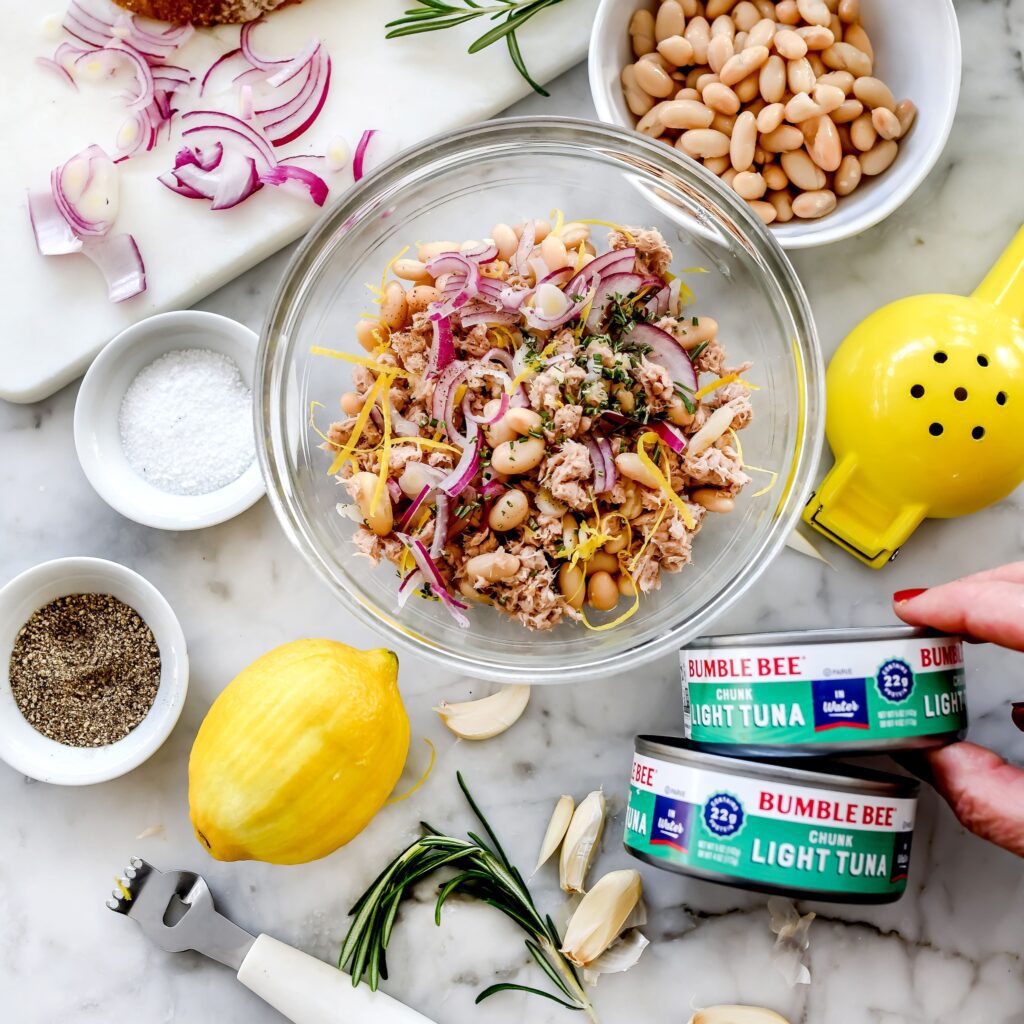
Bumble Bee Seafoods is a brand that offers a range of seafood products, including tuna, salmon, sardines, and clams. The brand is committed to using sustainable fishing practices and sources its tuna from fisheries that use pole-and-line fishing methods, which are more sustainable and have a lower risk of bycatch.
Bumble Bee Seafoods is also certified by the Marine Stewardship Council (MSC), which recognizes sustainable fishing practices.
Ocean Hugger Foods
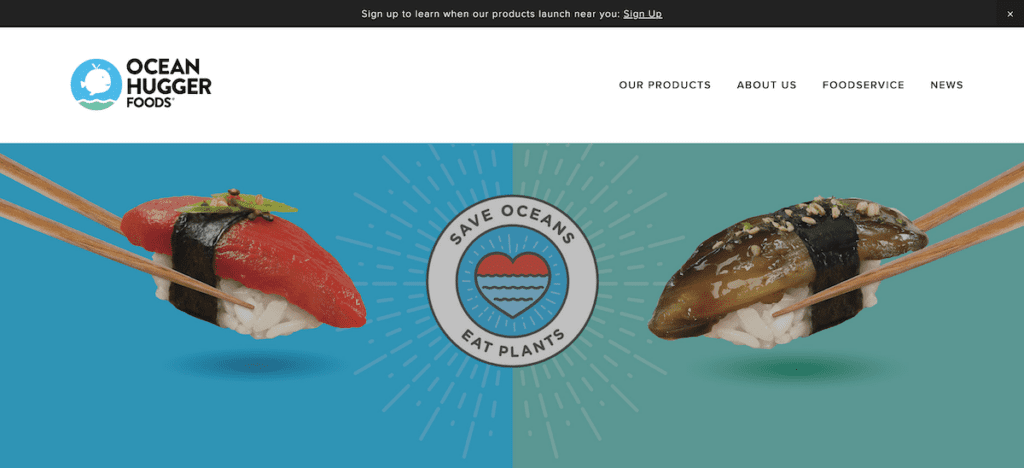
Ocean Hugger Foods is a brand that offers plant-based seafood alternatives that are designed to mimic the taste and texture of real seafood.
The brand’s products include Ahimi, a vegan alternative to raw tuna, and Unami, a vegan alternative to eel. Ocean Hugger Foods is committed to sustainability and reducing the impact of commercial fishing on the ocean.
By using plant-based ingredients, the brand aims to offer a more sustainable and ethical alternative to traditional seafood.
Verlasso
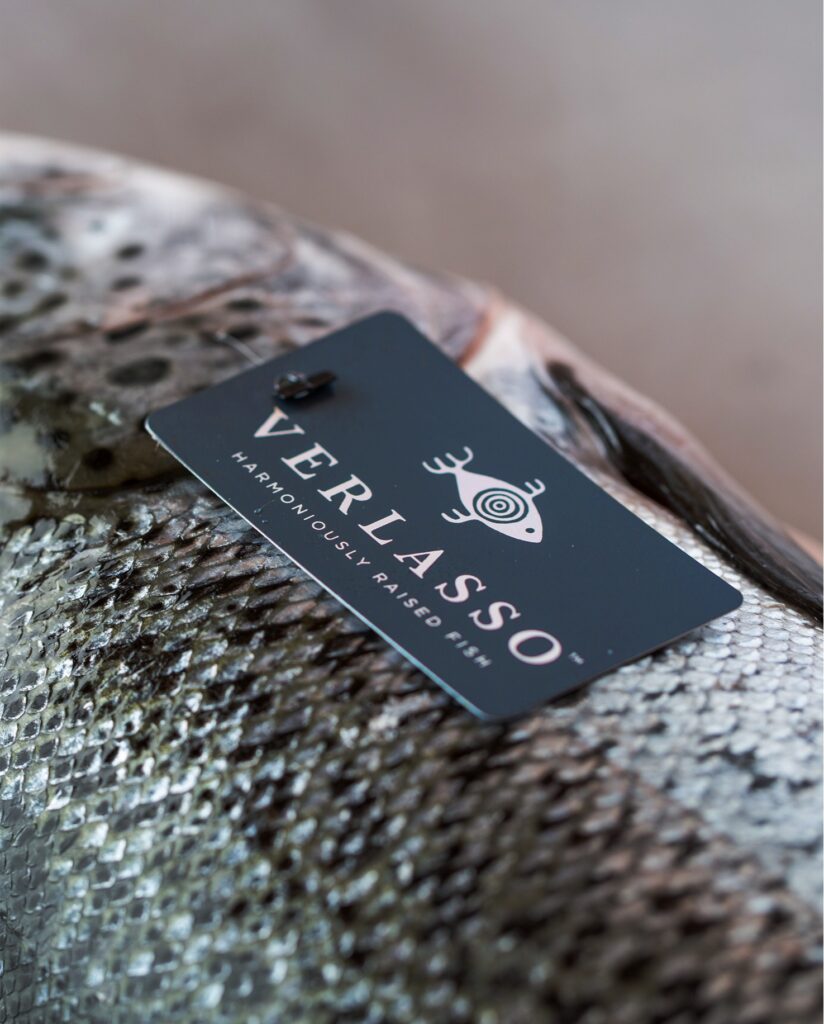
Verlasso is a brand that produces farm-raised salmon using sustainable practices. The brand uses a unique aquaculture method that reduces its impact on the environment and promotes the health and well-being of the fish.
Verlasso’s salmon are fed a diet that is free from antibiotics and other harmful chemicals, and the brand is committed to reducing its use of wild fish for feed.
Additionally, Verlasso has received certification from organizations such as the Aquaculture Stewardship Council and the Global Aquaculture Alliance, which recognize sustainable practices in the aquaculture industry.
Blue Circle Foods
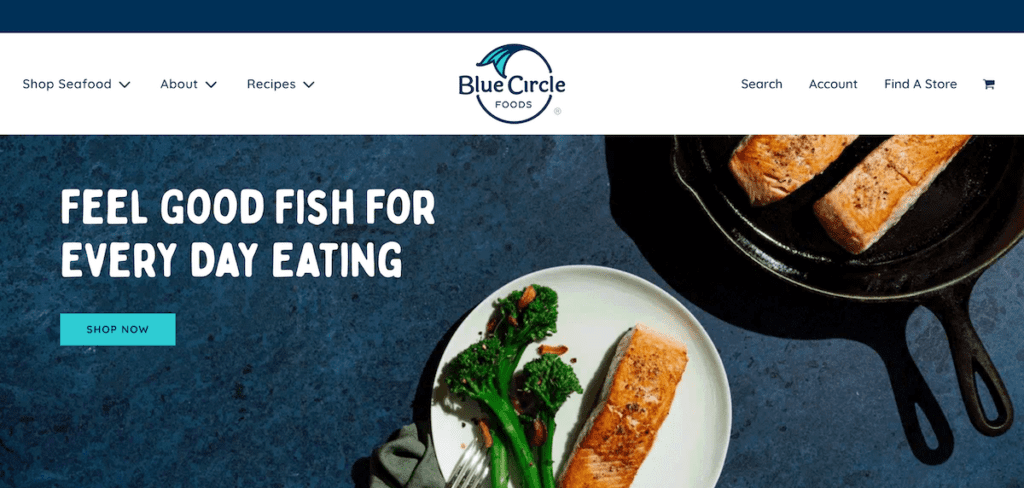
Blue Circle Foods is a brand that offers a range of seafood products, including salmon, trout, and shrimp, that are sourced using sustainable and responsible practices.
The brand works closely with small-scale farmers and producers to ensure that its seafood is sustainably farmed and harvested, and it is committed to reducing its impact on the environment.
Blue Circle Foods also partners with organizations such as Seafood Watch and the Aquaculture Stewardship Council to ensure that its practices meet industry standards for sustainability.
Wildtype Foods
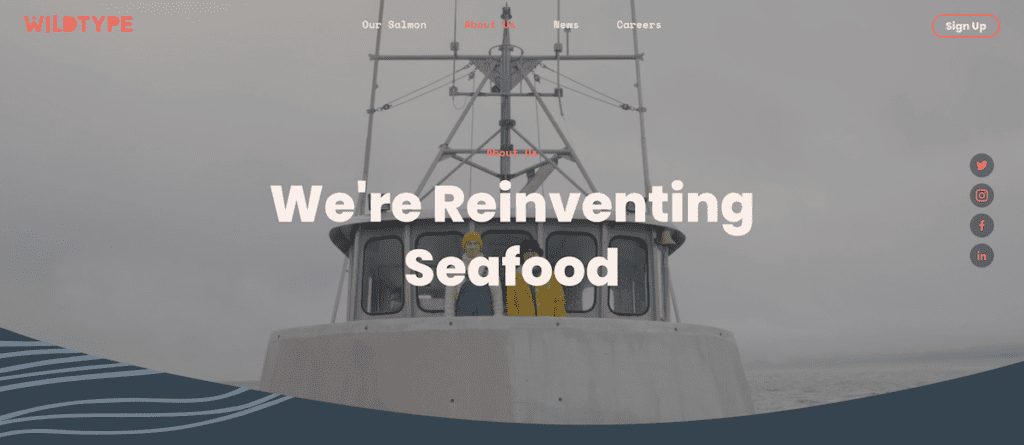
Wildtype Foods is a food tech company that is developing sustainable seafood alternatives using cellular agriculture. They are focused on producing cell-cultured salmon and bringing it to market as a more sustainable and environmentally-friendly option to traditional salmon farming.
They aim to reduce the environmental impact of salmon farming and increase the availability of healthy and sustainable seafood for consumers.
Sea to Table
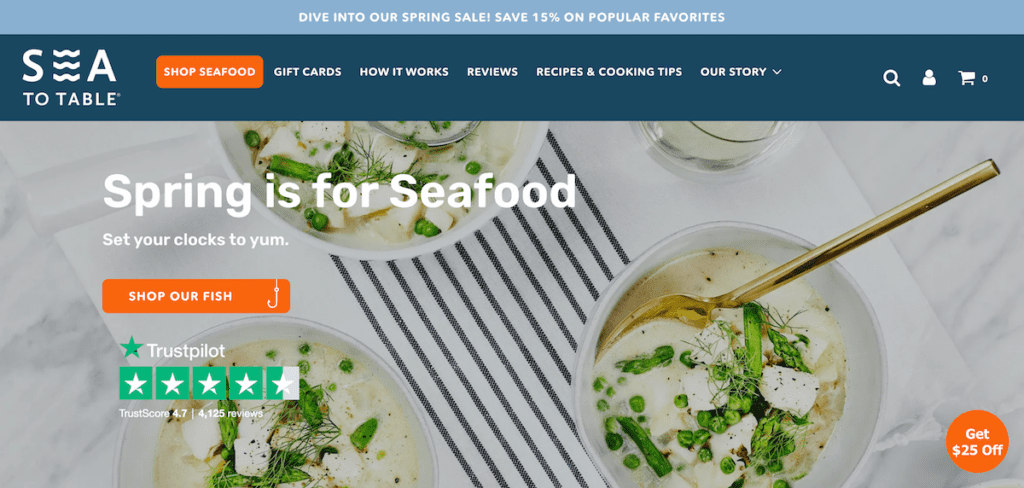
Sea to Table brings responsibly caught and high-quality seafood from American fishermen to consumers’ freezers with its home delivery service.
The brand works closely with fishing communities across the US, which are closely monitored and managed to ensure responsible fishing practices. Sea to Table was founded by Sean Dimin, who has a deep love for marine life and the people and places that connect us to the sea.
With Sea to Table, families across the US can enjoy the best catch and eat better fish. The brand’s mission is to celebrate America’s seafood and offer the best place to buy seafood online. Sea to Table’s website offers a wide variety of seafood products that are traceable and meet high standards for sustainability.
Fishpeople
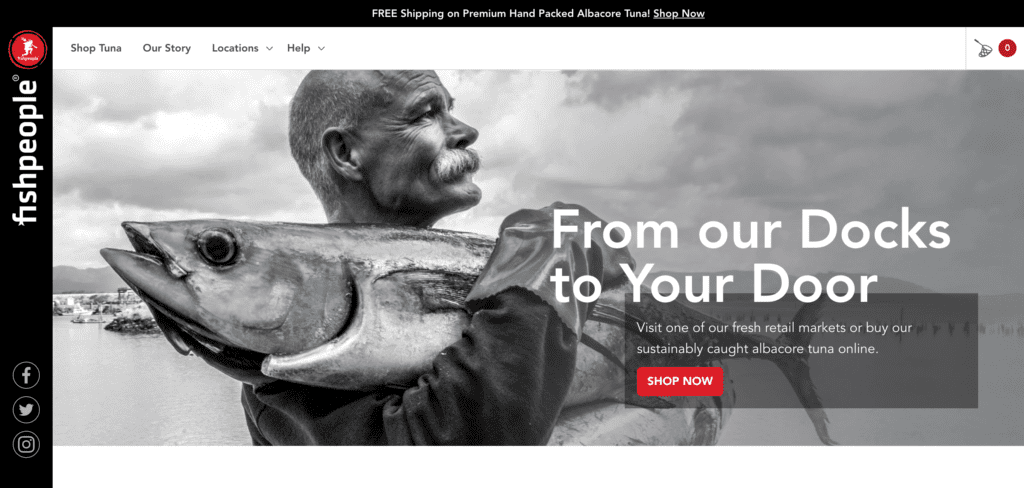
At Fishpeople, they are dedicated to sustainable fishing practices, supporting fishing communities, and providing nourishing seafood products. They aim to create an industry that benefits everyone involved, not just a select few.
They believe in the importance of knowing the story behind the seafood you purchase, and the people and watershed it supports. They strive to be a trustworthy and reliable fishmonger, committed to quality and transparency.
Fishpeople operates retail markets in Oregon and Washington, and has its own landing and processing facility in Oregon. They work with a network of fishermen and aquaculture farmers to bring high-quality seafood to consumers.
Their dedication lies in preserving the well-being of our oceans and the marine life within them. By employing sustainable fishing methods, they can minimize bycatch and ensure the quality of seafood, leading to a delectable taste and a more sustainable ocean.
When practiced appropriately, sustainable aquaculture can have a similar effect and can play a crucial role in catering to the global demand for healthy seafood.
Good Catch Foods
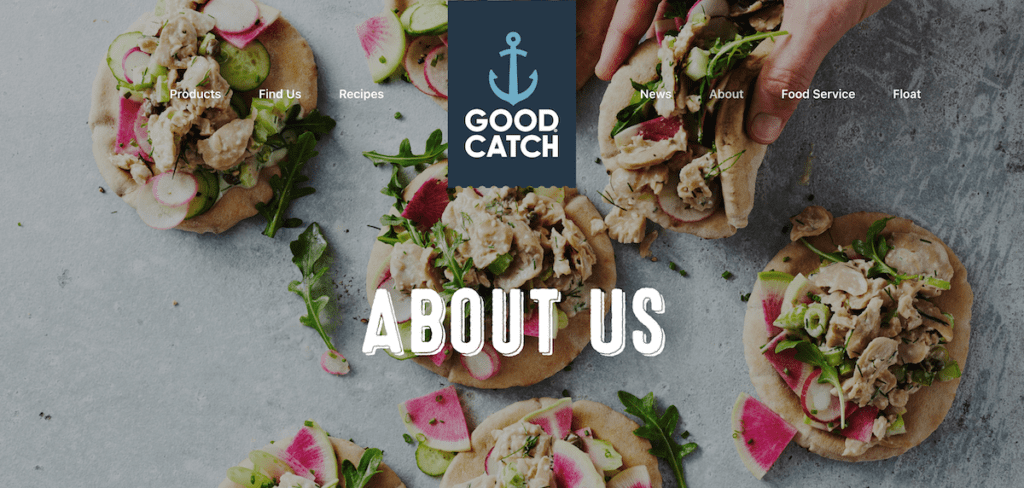
Good Catch Foods is a company that produces plant-based seafood alternatives, such as vegan tuna, crab cakes, and fish burgers. The brand aims to provide a more sustainable and ethical alternative to traditional seafood, while still offering similar taste and texture.
They use a blend of legumes and algae to create their products, which are free from gluten, soy, and GMOs. Good Catch Foods partners with various retailers, restaurants, and foodservice providers to distribute their products and increase access to plant-based seafood.
In conclusion, sustainable seafood is an important way to protect our oceans, maintain fish populations, and ensure that we have access to healthy and delicious seafood for years to come.
By choosing sustainable seafood and supporting responsible fishing practices, we can help to protect our planet and support fishing communities around the world.








